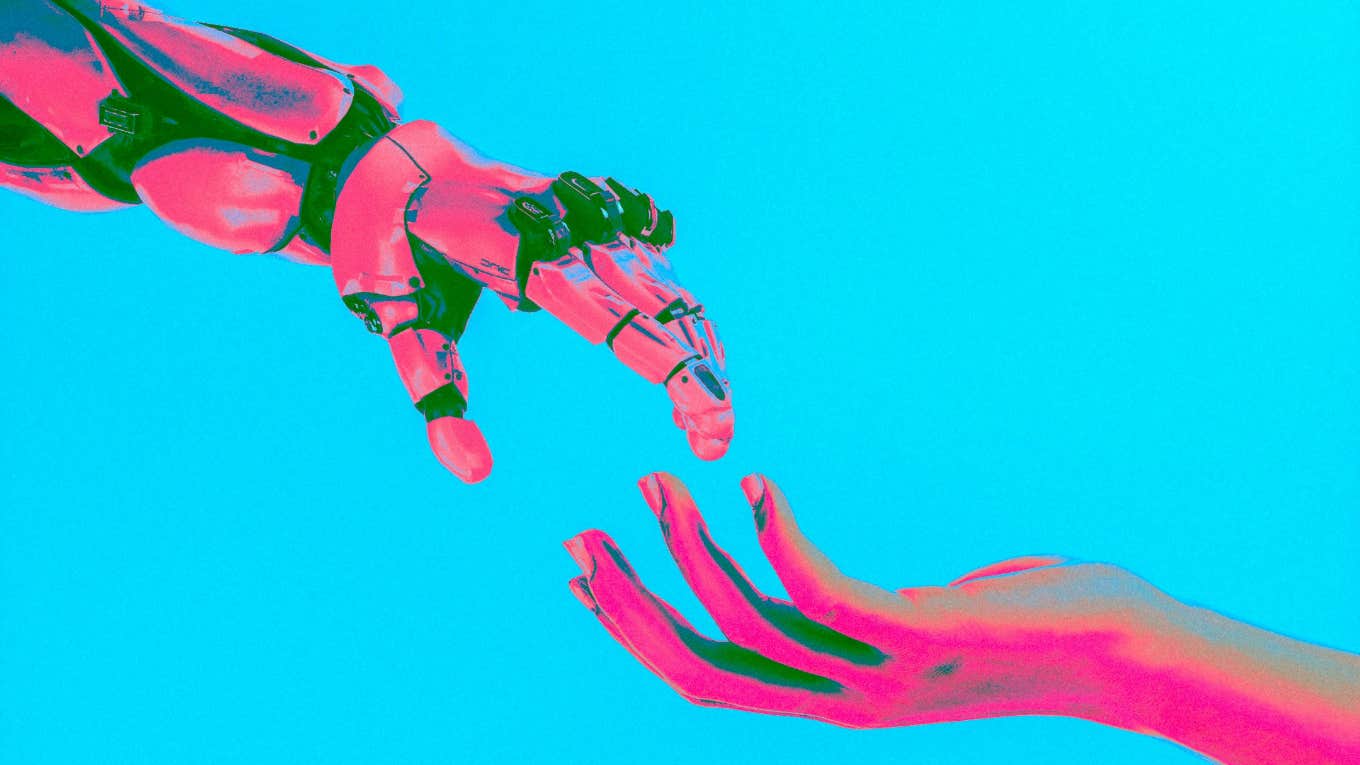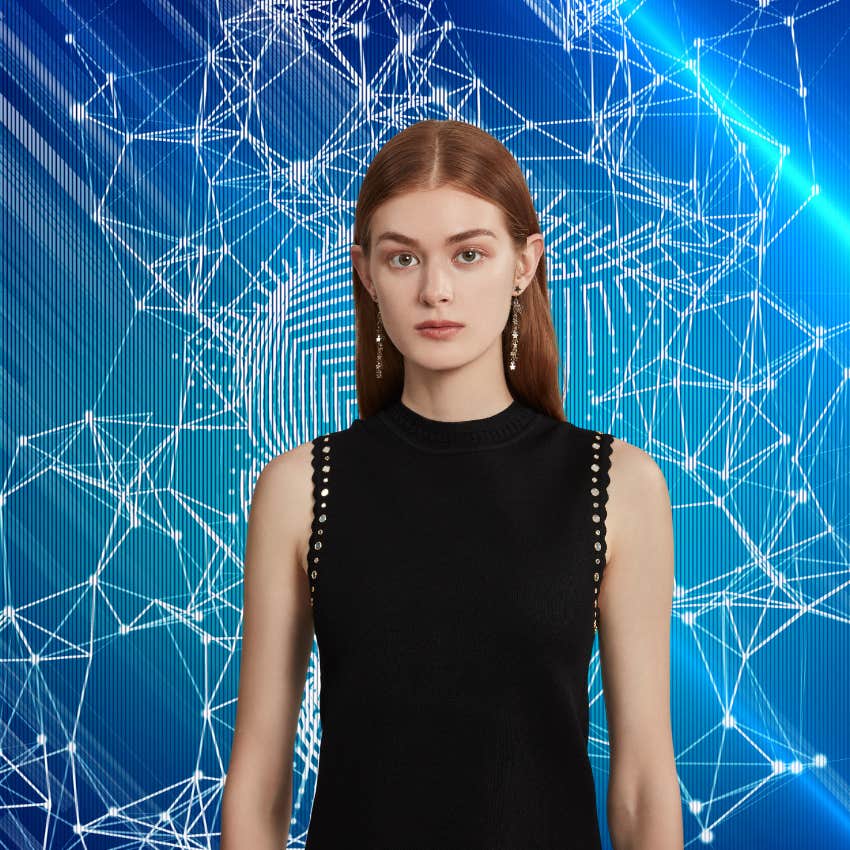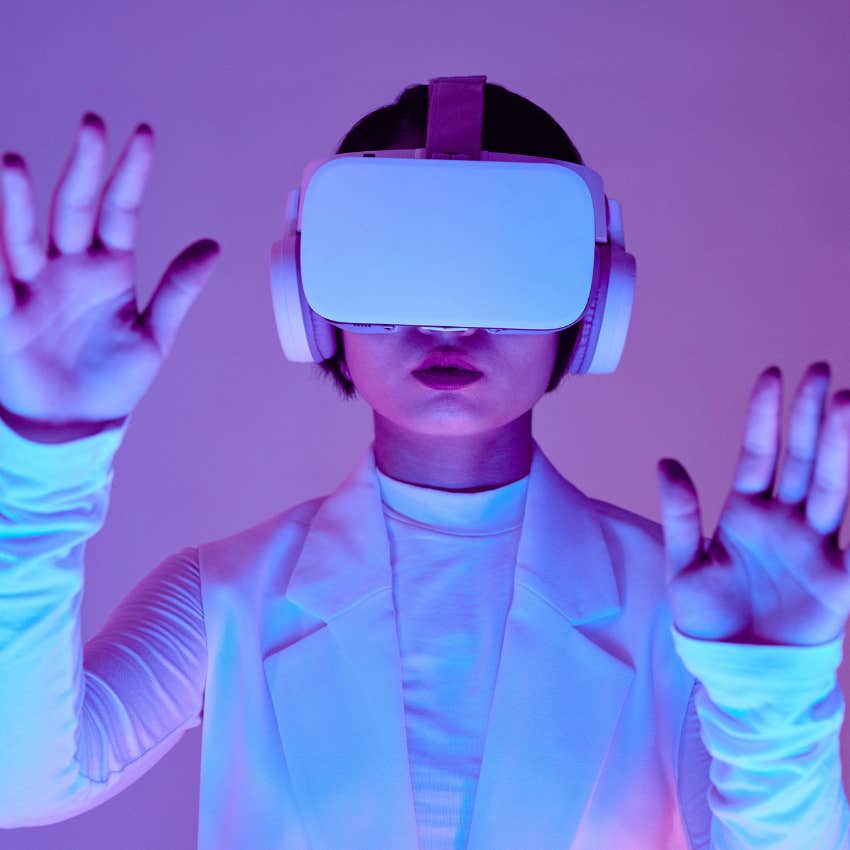7 Weird Jobs AI Will Create By 2030, According To A CEO's Predictions
The things AI creates just might be as surprising as the things it dismantles.
 Cash Macanaya | Unsplash
Cash Macanaya | Unsplash There's no doubt that the AI revolution is changing everything, and so far… well, a lot of the results don't seem so great. That's perhaps most true in the world of work. Pretty much everyone is feeling a bit nervous about whether their job will still exist in a decade or two (or a year or two, more likely). But as has happened in every technical revolution in the past, innovation always creates things alongside what it destroys, and one CEO thinks our working world will be no exception.
Jason Morris, the CEO of Profit Engine, takes a much more optimistic view of the impact of AI than a lot of us do. His reasoning is one shared by a lot of experts, even within the tech industry. As extraordinary as AI's abilities seem to be, it has its limitations. If you use AI tools or even if you just spend a lot of time online, you'll have seen the examples of this: Awkward, uncanny valley AI videos, AI-generated search summaries that don't make any sense, unconvincing deepfakes, and, of course, chat tools that are, uh, turning people psychotic. It's far from a perfect tool! And Morris said this creates opportunity.
“We tend to overestimate what AI can do alone and underestimate the kinds of new opportunities it opens up for people,” he said.
He sees this leading to a forthcoming explosion in careers centered on blending human imagination with machine capability to fill in those gaps and smooth out the rough spots.
7 weird jobs AI will create by 2030, according to a CEO's predictions:
1. Virtual Pet Therapist
 XH4D | Getty Images Signature | MarkCoffeyPhoto | Getty Images Signature | Canva Pro
XH4D | Getty Images Signature | MarkCoffeyPhoto | Getty Images Signature | Canva Pro
As weird as it seems to many of us, people forming bonds and attachments with AI-generated figures isn't going anywhere, and one of the newest manifestations of this is virtual pets. Those who can't have a real dog or cat for whatever reason can create one using AI, and the attachments people are forming are similarly deep. Morris thinks this will create a career niche for people who want to help lead others through virtual pet ownership.
"A Virtual Pet Therapist will help owners navigate the bonds they form with these AI companions, guiding them through training, behavioral issues, or even the 'grief' of software retirement," according to Morris.
This job could leverage everything from psychology and counseling skills to technical know-how when it comes to human-machine interaction.
2. Digital Memory Curator
Morris said that by 2030, our personal AIs will likely be storing everything, from our conversations and photos to our biometric data and emotional states. This, he believes, will give rise to the job of "digital memory creator," someone who essentially creates a meaningful archive of all this data and ensures that it's organized, searchable, and most of all meaningful. That last part isn't necessarily AI's strong suit.
"Without human curation, personal AI archives could become overwhelming data dumps," Morris said. "People will want someone who can tell the story of their lives," and that human touch will make all the difference.
This could prove to be a whole new frontier, especially for those with skills in archival and library sciences.
3. Algorithm Bias Auditor
Bias in AI is already such a concern that Sam Altman, CEO of ChatGPT's parent company OpenAI, recently warned that people should not "trust" their AI chatbots and should view any and everything they say with healthy skepticism. Nevertheless, the internet is increasingly full of stories of people being hurled into full-blown psychosis by the political, conspiratorial, and spiritual rabbit holes their "relationships" with chatbots have pushed them down.
In our current age of media illiteracy and rampant disinformation, "trust is the currency of the AI economy," Morris said. "If people don’t trust the algorithms that shape healthcare, finance, or justice, the entire system breaks down."
Morris thinks this will create a career niche for bias auditors who will be hired by everything from corporations and media companies to governments and NGOs. Those with skills in statistics, law, and the social sciences will be in particular demand for these jobs, Morris theorized.
4. AI-Assisted Dream Interpreter
Sleep tech is a booming industry at the moment, and brain-monitoring technology is expanding rapidly alongside AI, creating a future scenario where the sleep data on our phones can be used to do deep analysis of our brain function.
Enter AI-assisted dream interpreters, a job Morris predicts will be a growing field that combines tech outputs with the symbolic and cultural understanding of what psychology and spiritual disciplines say about dreams and what they mean. Morris sees this as a process where the AI provides the "what" of the dream and the interpreter provides the "why."
"Machines can chart brainwaves, but ultimately they can’t connect those images to cultural myths, emotional history, or personal growth," he said. "That’s a profoundly human role" that will pull in skills in psychology as well as disciplines like anthropology and creativity.
5. AI Personality Designer
 gdhllz | pixabay | Anadmist | Getty Images | Canva Pro
gdhllz | pixabay | Anadmist | Getty Images | Canva Pro
We're already using AI avatars for all kinds of things. A few years from now? They'll be everywhere, from customer service reps to digital companions, and maybe even teachers and celebrity doubles. And as this practice grows, so does the need for human beings to help design these figures.
That, Morris thinks, is where AI personality designers will come in, who will shape how these avatars emote and connect with people to make sure they feel authentic rather than "uncanny valley" creepy.
"These avatars will take Siri to the next level, naturally displaying humor, quirks, and emotional intelligence," Morris said, creating a perfect job for those with skills in things like psychology and linguistics, as well as art and design, especially those from fields like entertainment and video games with character development skillsets.
6. Machine Learning Sommelier
We all know about regular sommeliers, who know all there is to know about wine products so that they can make bespoke recommendations based on customers' preferences. Morris sees a nice opening for this kind of expertise to merge with technology, focusing not only on wine but also everything from coffee to cocktail pairing for things like catering menus. But it will go beyond mere food and beverage details, holistically tying together data from biometrics and sciences like flavor chemistry to create a more holistic approach.
"The human palate is emotional as much as it is biological," Morris said. "A role like this combines sensory knowledge with data science to bring hospitality into the AI era" in a way that melds disciplines as disparate as the culinary arts and technical sciences.
7. Virtual Environment Stylist
 Michelangelo Buonarroti | Pexels | Canva Pro
Michelangelo Buonarroti | Pexels | Canva Pro
Much like the aforementioned avatars, immersive digital environments and the "metaverse" are expanding rapidly, too, and that once again calls for design skills. Morris thinks virtual environmental stylists will play a curatorial role, inserting that human touch AI often misses into designs for everything from Zoom backgrounds to educational and therapeutic locations.
"The demand for people who can design emotionally intelligent spaces will be enormous," Morris predicted. "While these job titles may sound futuristic, they highlight a central truth: AI magnifies the need for human skills," Morris added. "The irony is that the more intelligent our machines become, the more we’ll need to double down on human intelligence, which is the kind rooted in ethics, imagination, and emotional resonance."
The bottom line is that just like AI isn't going anywhere, neither are the ways in which it feels so dehumanizing to so many. That opens up opportunities that just might make our AI future a lot less daunting than it feels right now.
John Sundholm is a writer, editor, and video personality with 20 years of experience in media and entertainment. He covers culture, mental health, and human interest topics.

